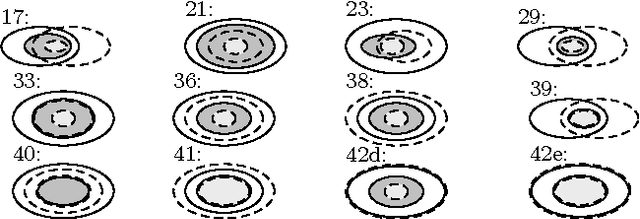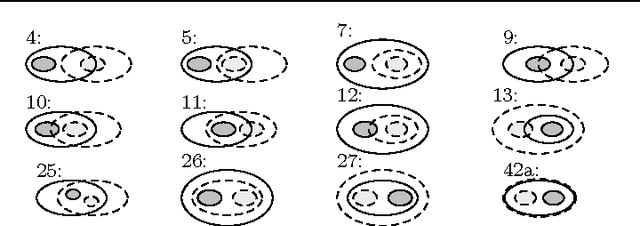Elisa Burato
Meaning Negotiation as Inference
Jan 23, 2011



Abstract:Meaning negotiation (MN) is the general process with which agents reach an agreement about the meaning of a set of terms. Artificial Intelligence scholars have dealt with the problem of MN by means of argumentations schemes, beliefs merging and information fusion operators, and ontology alignment but the proposed approaches depend upon the number of participants. In this paper, we give a general model of MN for an arbitrary number of agents, in which each participant discusses with the others her viewpoint by exhibiting it in an actual set of constraints on the meaning of the negotiated terms. We call this presentation of individual viewpoints an angle. The agents do not aim at forming a common viewpoint but, instead, at agreeing about an acceptable common angle. We analyze separately the process of MN by two agents (\emph{bilateral} or \emph{pairwise} MN) and by more than two agents (\emph{multiparty} MN), and we use game theoretic models to understand how the process develops in both cases: the models are Bargaining Game for bilateral MN and English Auction for multiparty MN. We formalize the process of reaching such an agreement by giving a deduction system that comprises of rules that are consistent and adequate for representing MN.
 Add to Chrome
Add to Chrome Add to Firefox
Add to Firefox Add to Edge
Add to Edge